Strike the Right Balance
1 of 7
Young athletes should build balanced plates," says Katie Jeffrey, MS, RD, CSSD, a registered dietitian, in Stonington, Connecticut. "About 50 to 60 percent of their plate should be composed of carbohydrates such as whole wheat pasta, bread, brown rice or a baked sweet potato. Twenty-five to 30 percent of the plate should be non-starchy vegetables such as lettuce, greens, cabbage, broccoli and carrots. The remaining 15 to 20 percent should be filled with lean protein such as chicken, turkey, eggs, beans, tofu or lean cuts of red meat or pork."
Hydration is Key
2 of 7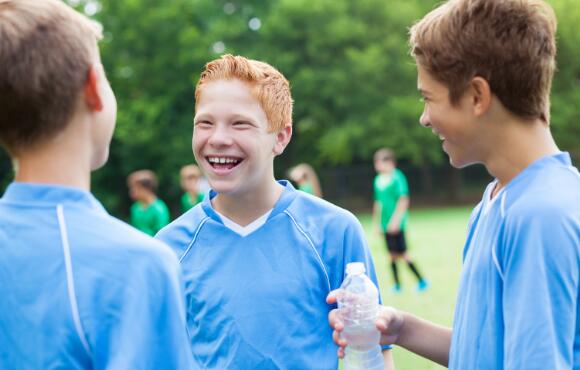
Children are more likely to suffer from heat-related illness while exercising than adults, so fluids are essential. Be sure kids drink water before, during and after exercise. Hydrating fruits such as sliced oranges or watermelon are also great to quench kids' thirst between games or as healthy post-game snacks. Only serve sports drinks when they've been playing or practicing longer than an hour, otherwise you're just feeding them extra sugar.
Don't Forget Breakfast
3 of 7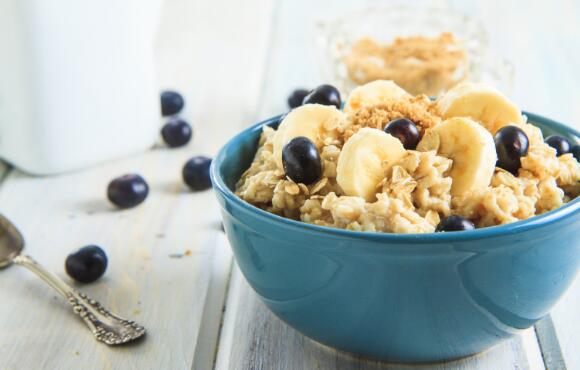
It holds true that breakfast really is the most important meal of the day--especially for active kids. It's a great opportunity to serve up an energizing meal to start the day right. Pressed for time? Try these quick-and-healthy breakfast ideas for busy mornings.
Never Skip Lunch
4 of 7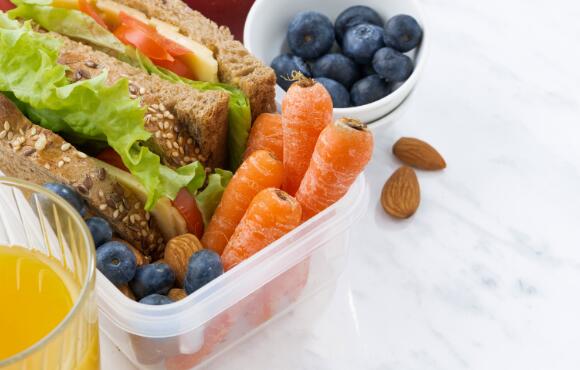
Skipping lunch is a bad idea, as is nibbling on junk food for the mid-day meal. Why miss the perfect chance to fuel the body for after-school games and practices? A balanced lunch for young athletes should include grains, protein, fruits, veggies and a little dairy. Kids should aim to eat three to four hours prior to their activity in order to allow the body enough time to digest and store nutrients.
Serve a Nutrient-Dense Dinner
5 of 7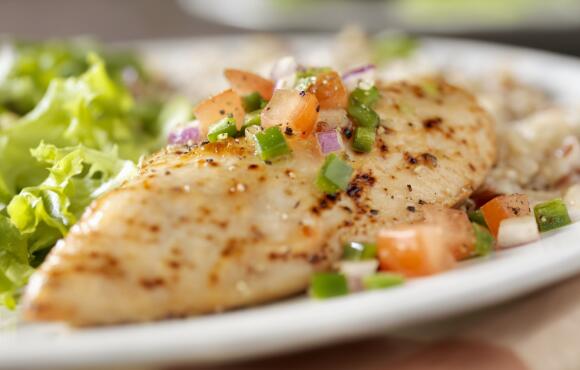
Calcium and iron are especially important for young athletes, in order to build strong bones and carry oxygen to all areas of the body. This means that your little one should regularly eat leafy greens, and they're a great option for a dinner side dish. Sprinkle a little cheese on top or drizzle them with a natural salad dressing if kids are reluctant to try them. In addition, be sure to serve up meat, eggs and dried fruits for iron.
Choose Smart Snacks
6 of 7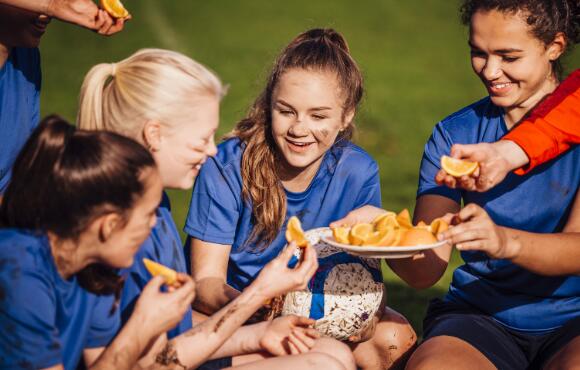
Finally, in sports such as basketball, soccer and softball, teams may have tournaments and will play several consecutive games in the course of a day. For these occasions, pack light, healthy snacks that will help kids keep their energy level up between games. Choose carbohydrates such as Greek yogurt and fruit, as well as lightly salted snacks like pretzels to replace sodium lost in sweat. Add a protein source like nuts or nut butters, and pack plenty of water, as well.
About the Author


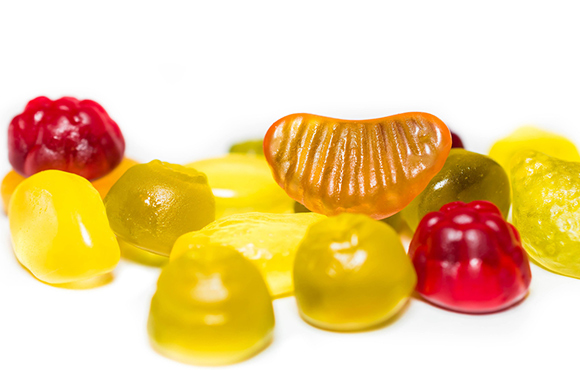





Discuss This Article